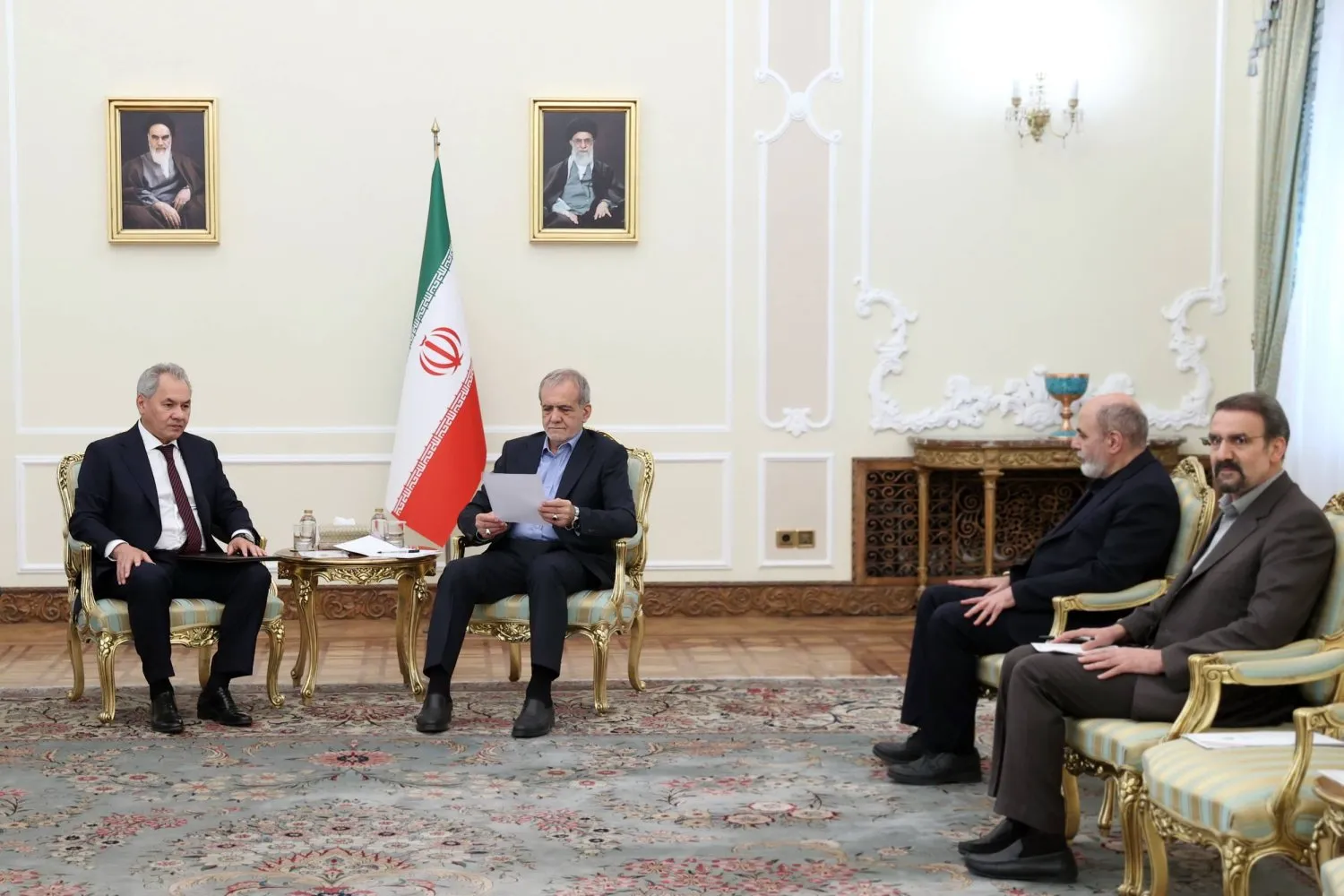Iranian President Masoud Pezeshkian on Tuesday committed his country to deeper ties with Russia to counter Western sanctions.
“My government will seriously follow ongoing cooperation and measures to upgrade the level of relations between the two countries,” Pezeshkian said during a meeting with Russia's top security official Sergei Shoigu, who arrived in the Iranian capital in an announced visit.
“Deepening and strengthening relations and cooperation between Iran and Russia will reduce the impact of sanctions and the unjust measures against both countries,” the President was quoted as saying by the Iranian presidency website.
He added: “Relations between Tehran and Moscow will develop in a permanent, continuous and lasting way.”
During the meeting, Shoigu delivered a message from Russian President Vladimir Putin to Pezeshkian, as seen in photos published on the presidency website.
The Russian official then held discussions with Ali Akbar Ahmadian, head of Iran's Supreme National Security Council.
Last week, Ahmadian and Shoigu held talks during a conference of high-ranking BRICS and BRICS Plus officials in St. Petersburg, where the Iranian official also met with Putin.
According to TASS, Ahmadian emphasized that the newly-elected President of Iran has no intention to change Tehran’s approach to Russia, established during the later President Ebrahim Raisi.
“Pezeshkian has no intention to change the approach to Russia that has been established under the previous president. I talked to him several times, he intends to preserve [the bilateral relations] and to keep developing them,” Ahmadian said.
The visit of Shoigu to Tehran on Tuesday comes after the United States and its allies accused Iran last week of transferring ballistic missiles to Russia for its war in Ukraine, imposing fresh sanctions on Moscow and Tehran. Russia and Iran both denied the Western claims.
Asked whether Iran had transferred missiles to Russia, Pezeshkian told a televised news conference on Monday, “It is possible that a delivery took place in the past... but I can assure you that since I took office, there has not been any such delivery to Russia.”
Reuters reported in February that Iran had provided Russia with a large number of powerful surface-to-surface ballistic missiles, deepening the military cooperation between the two US-sanctioned countries.









